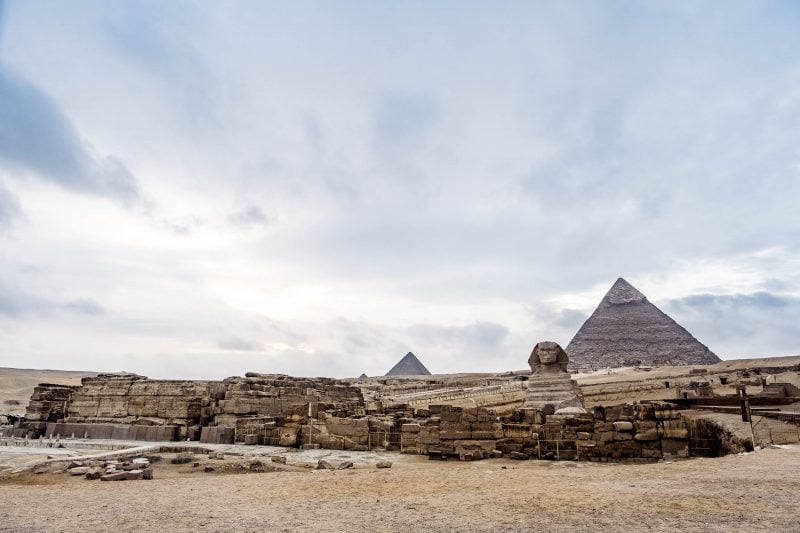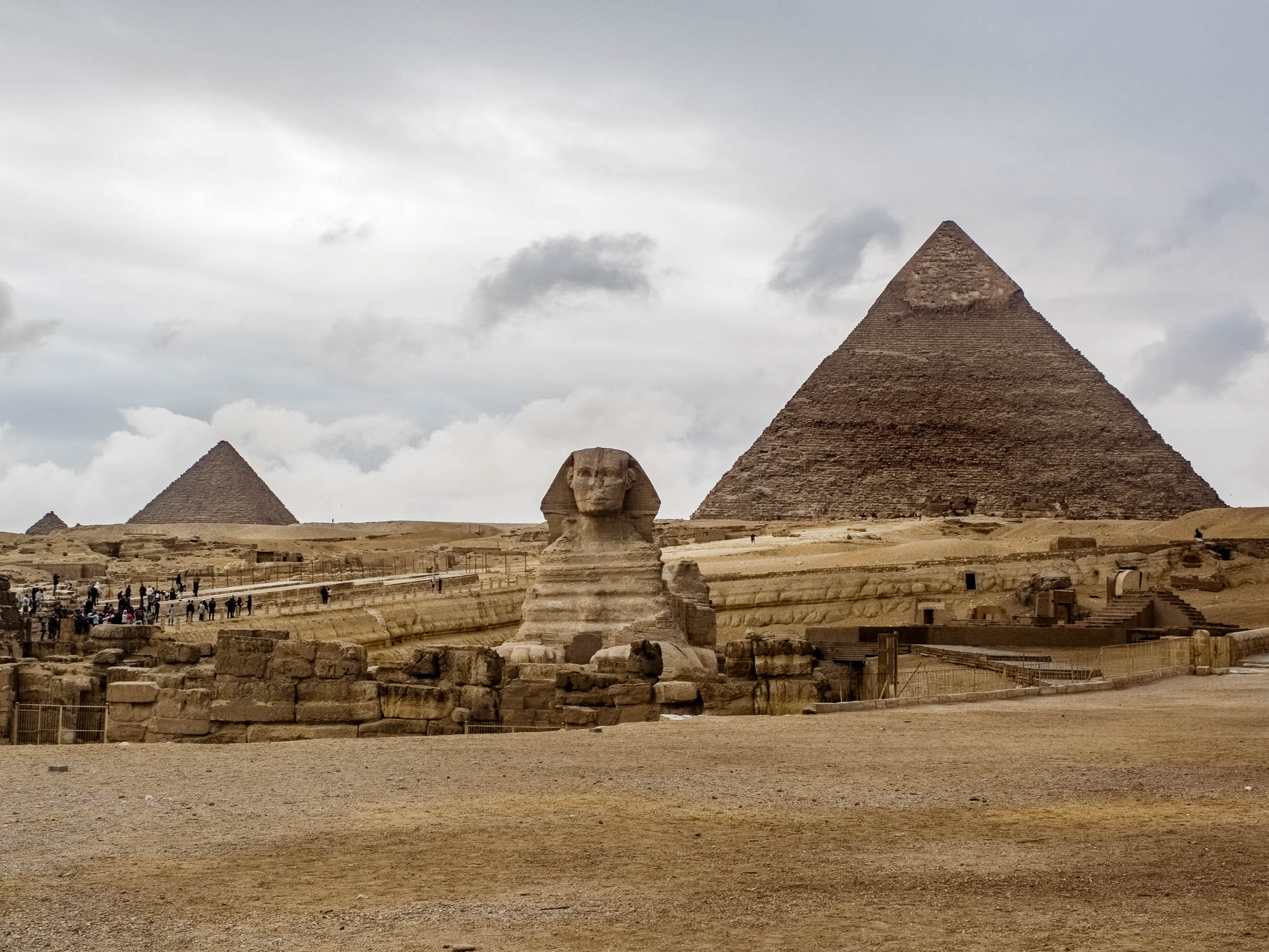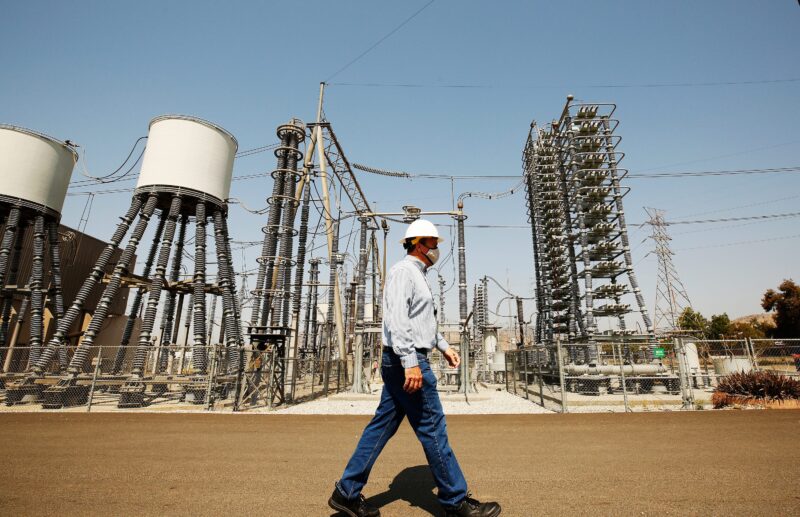- The Great Pyramid of Giza in Egypt is the only one of the Seven Wonders of the World still standing, which was acknowledged when the new seven wonders of the world were introduced in 2007.
- I recently fulfilled a childhood dream to visit the archeological site, as well as many of Egypt’s other pyramids, during a trip to the Middle East.
- While I saw countless photos of the pyramid before visiting, they don’t do justice to just how impressive it is in person.
- The key to a good visit is having a solid tour guide, knowing what scams you might encounter beforehand, and leaving enough time to see everything you want to see. I wish I had split my tour into two days.
There are few monuments in the world as iconic as the Pyramids of Giza, a necropolis that dates back nearly 5,000 years.
The Great Pyramid of Giza is the only one of the Seven Wonders of the World still standing, which was acknowledged when the new seven wonders of the world were introduced in 2007.
As a history buff, I’ve read more books about ancient Egypt and seen more photos and videos of the pyramids than I can remember. I even made a diorama of the Giza complex for a project in middle school.
Upon arriving in Giza in December, I caught my first glimpse of the pyramids, a sight I had been waiting to see since childhood. I fully expected to be disappointed. How could it ever measure up to the pyramids of my childhood dreams?
But the pyramids are there, and they are very real and very big. Seeing them for the first time induces the distinct feeling of vertigo.
I took a full day to visit as many of Egypt's 138 discovered pyramids as possible, including the Pyramids of Giza, as well as the Step Pyramid of Djoser, the Pyramid of Unas, the Bent Pyramid, and the Red Pyramid.
The experience was unforgettable, for both good and bad reasons. Here's what it was like:
To take full advantage of the Pyramids of Giza, I stayed as close as I could get. I booked a room with a balcony at the Pyramid Loft Guesthouse. Seeing the pyramids for the first time in daylight when I woke up induced a distinct feeling of vertigo. It's shocking. They're real!
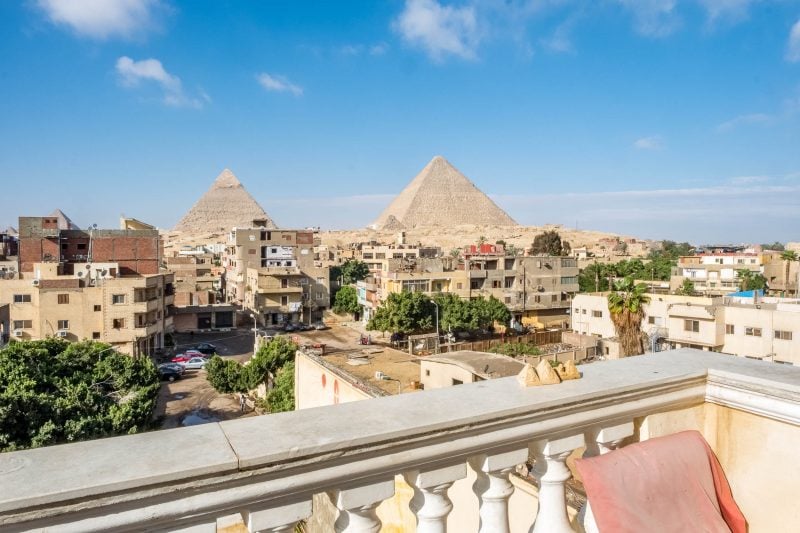
Breakfast was included with my room at the guesthouse. It was a tasty mix of Egyptian salads, baladi bread, falafel, and ful medames, an Egyptian dish of spiced cooked fava beans.

At 9 a.m., my tour guide picked me up. As I walked out, I got a view of Giza life. Many tourists complain about how close the pyramids are to the city, but I think it makes it more special. As Abrahim, the manager of the guesthouse said to me, "It's kind of amazing that many of our livelihoods are tied to something built 5,000 years ago."
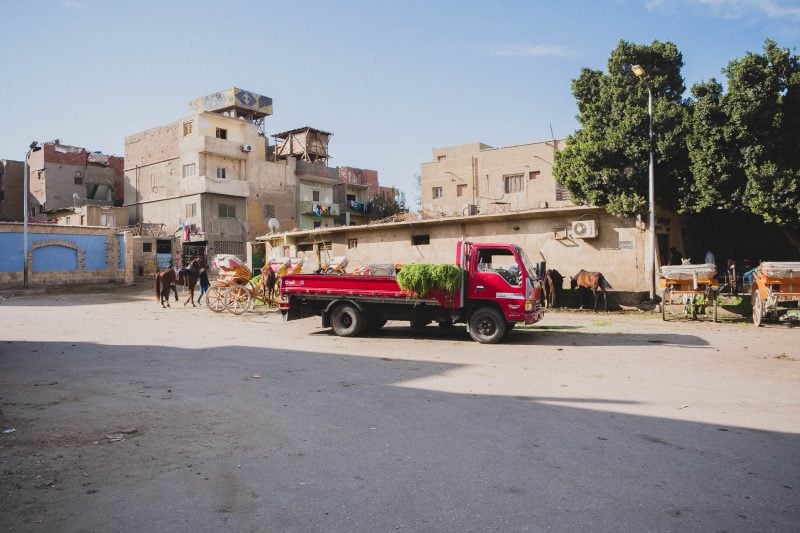
I took a one-day tour of Giza and the surrounding areas. There's a lot more to see than the Great Pyramid of Giza. We started by going to the farthest sites first, with the plan to see the Great Pyramid of Giza and the Sphinx in the hours before sunset.
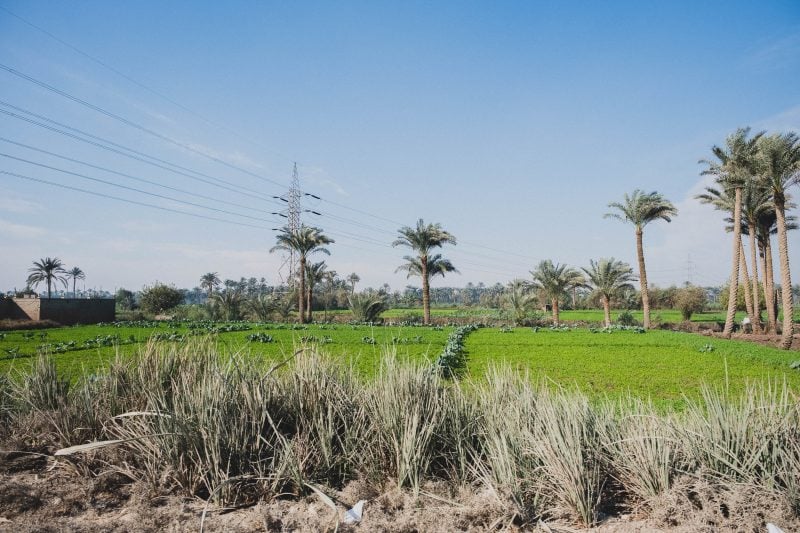
The first stop was the Dahshur necropolis' Red Pyramid, named for its red limestone. It's the third-largest pyramid in Egypt. A ticket costs 60 Egyptian pounds ($3.30).
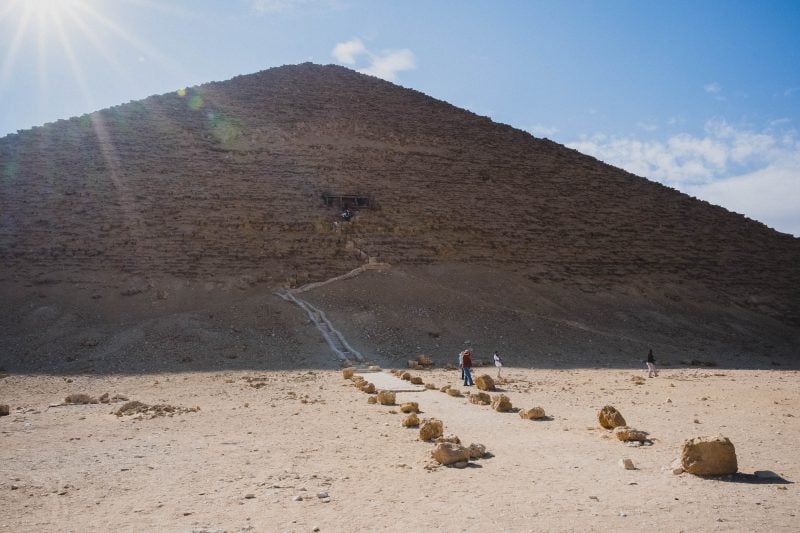
Built by the Pharaoh Sneferu, the Red Pyramid is older than the Great Pyramid of Khufu, an alternative name for the Great Pyramid of Giza. Khufu was Sneferu's son.
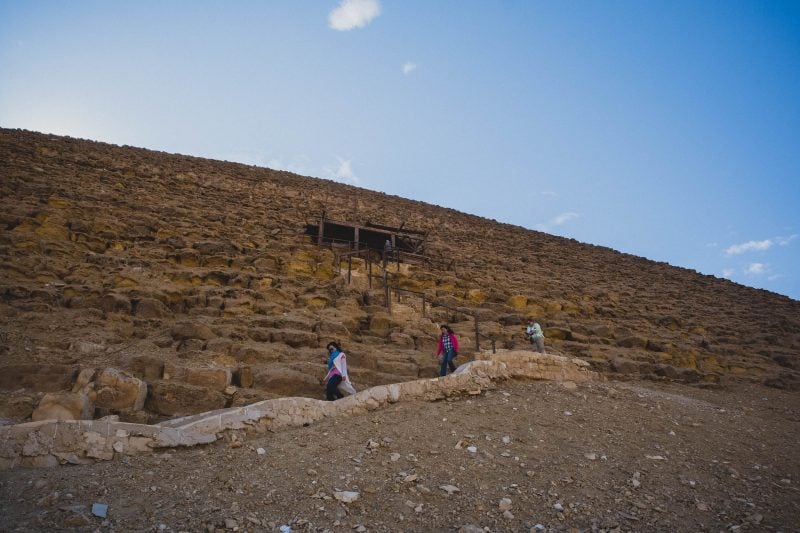
It's free to go inside the tomb when you buy a ticket to the complex. But, as I quickly found was common, the ticket taker asked for a tip when I exited.

To enter the pyramid, I descended a steep staircase in a narrow passageway that travels down a couple hundred feet to a short horizontal passageway. By the time I reached the bottom of the staircase, I couldn't see the light at the end of the tunnel.
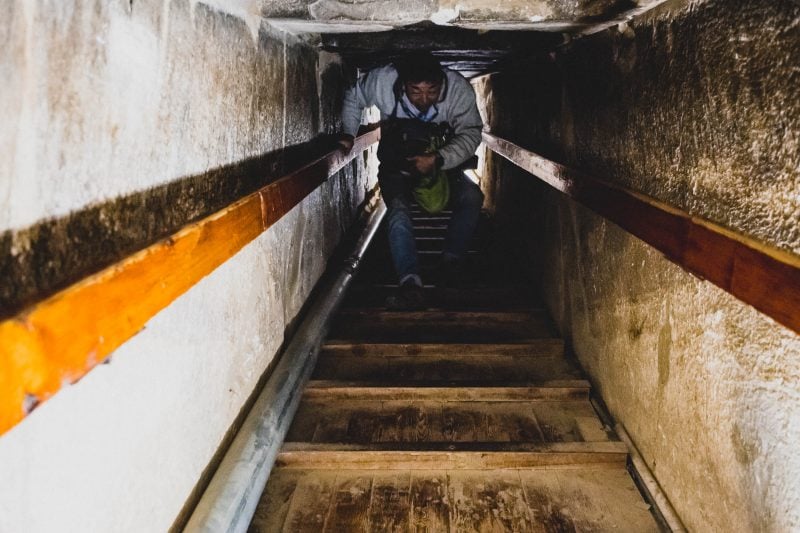
Once I was through the passageway, I entered a triangular room with a stepped ceiling that rises 40 feet. At this point, the stench and the heat started to get to me. I visited on a cool winter day, but it was stuffy and hot inside the pyramid.

The smell of mold was the worst part. I found it hard to breathe. It's important to remember that live humans weren't intended to be inside these places. The pyramids are tombs, designed to exalt the deceased and protect their possessions from grave robbers, many of whom spray-painted graffiti when they entered.
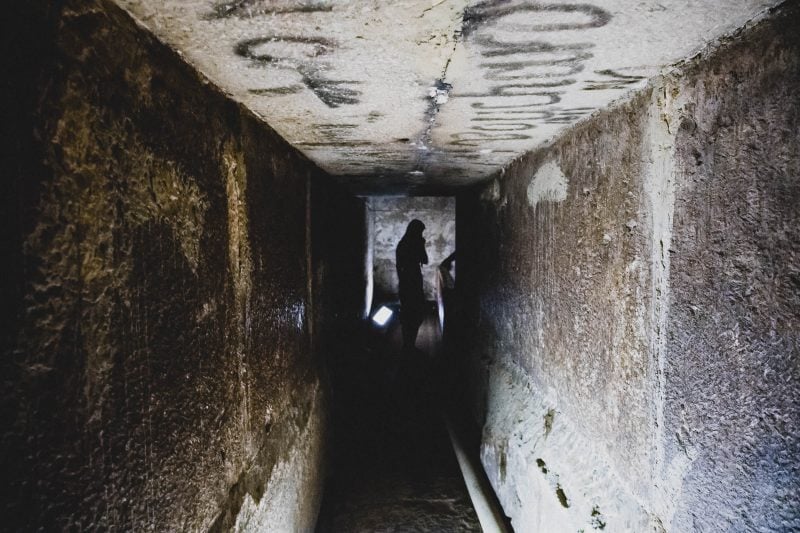
All I found inside were narrow passageways and empty rooms. Grave robbers, explorers, and museum officials have long since taken anything of interest out of the tomb. But there is a thrill in being inside. This is thought to be the king's burial chamber.
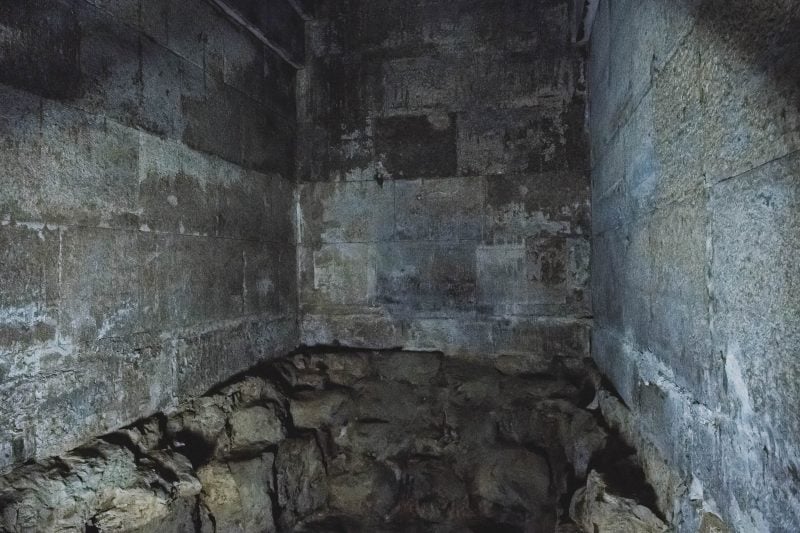
The complex of Dahshur, where the Red Pyramid is, is important for two reasons. It was the burial grounds for high-ranking officials and members of the court during the Old Kingdom ...

... and it was the site of many improvements in pyramid design, particularly during the reign of Sneferu. The Red Pyramid was ancient Egypt's first successful smooth-sided pyramid. It stands at more than 300 feet tall, about a third shorter than the Great Pyramid of Giza.
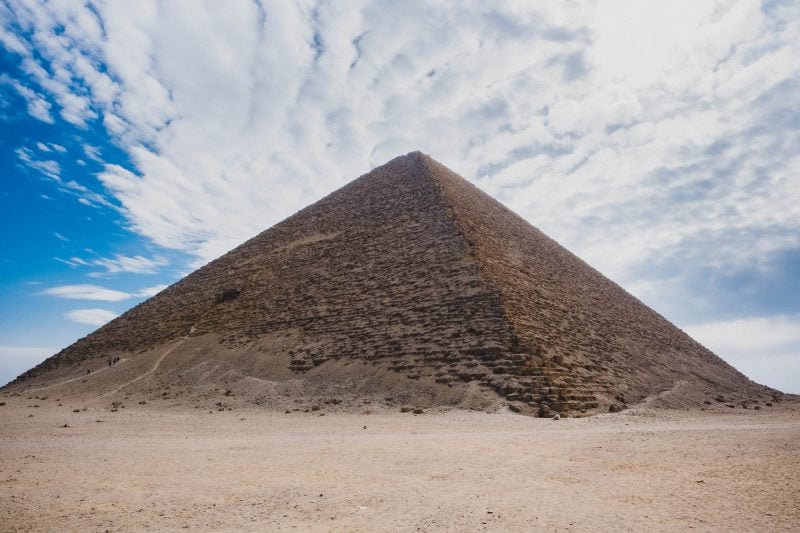
Source: Digital Journal
Nearby, in Dahshur, is the Bent Pyramid. Also built under orders by Sneferu, the Bent Pyramid was the first attempt at building a smooth-sided pyramid, many Egyptologists believe. The pyramid collapsed because of the use of gravel and clay at its base and the shape of the blocks.
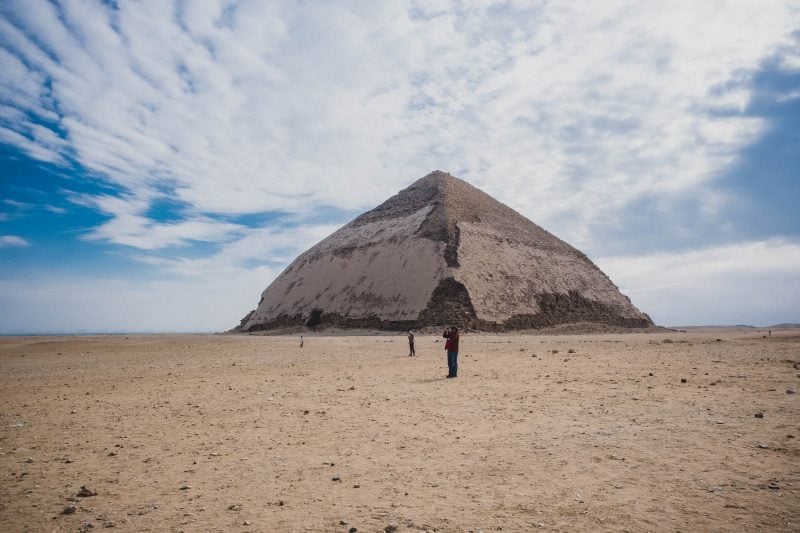
Source: Digital Journal
What I loved about visiting the pyramids of Dahshur is how peaceful and quiet the area is. The complex is about 15 miles from Giza.

Out here, you get the image of a pyramid rising out of the empty desert that you've probably been imagining (OK, I've been imagining) since you were a kid.

After marveling at Dahshur, we drove back along the Nile River. The lush scenery is beautiful. I was surprised to see so many farms and palm trees along the drive.
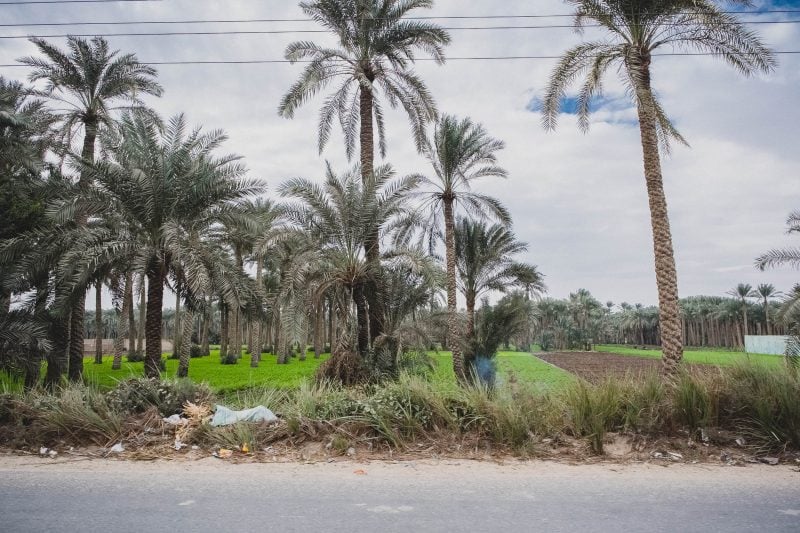
The drive passes through numerous small towns and outer suburbs of Giza. Because even today the vast majority of Egyptians live along the Nile, the drive gives a peek into daily life.
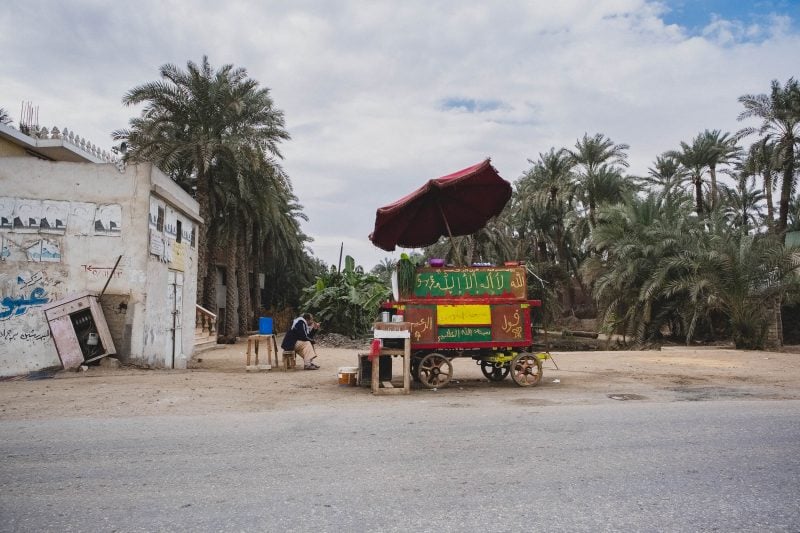
Our next stop was the ruins of Memphis. It was the capital of the state during the Old Kingdom. There's a small central building, but most of the area is an open-air museum of Egyptian carvings and sculptures.
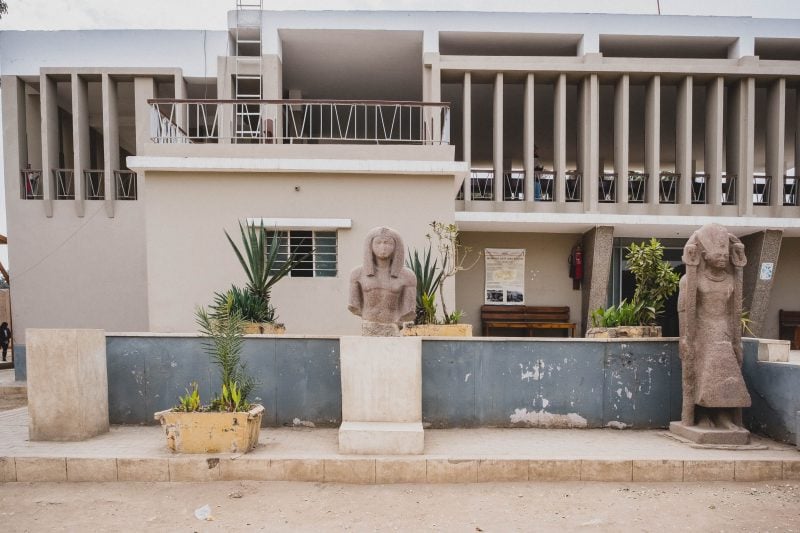
Source: Encyclopedia Britannica
While there's not much in the way of actual ruins, the open-air museum has excellent informative signage. A ticket costs 80 Egyptian pounds ($4.50).
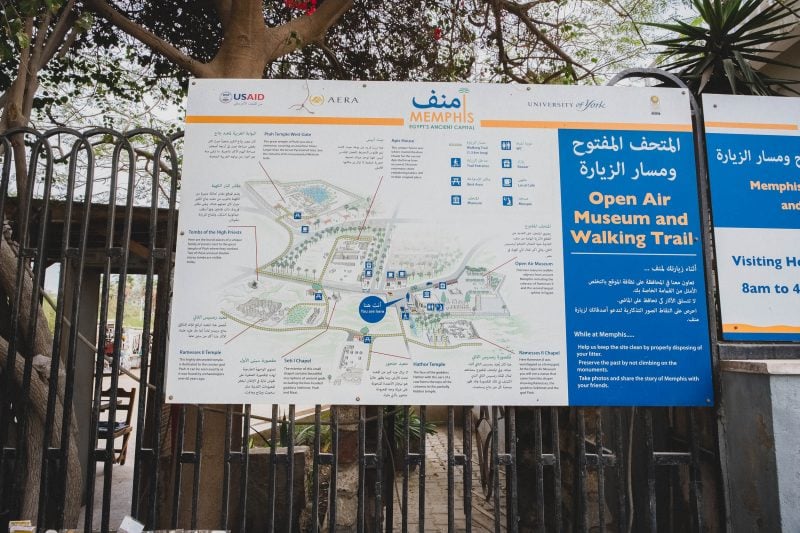
Like many of the sites I visited in Giza, it was pretty much empty when I was there. Years of instability, political change, and terror attacks have wreaked havoc on the Egyptian economy and the tourism industry.

But that means I was able to explore the many statues at my leisure. Like the "Triad of Memphis," a statue depicting the god Ptah — the patron of craftsmen and the protector of Memphis — his wife Sekhmet, and the famous pharaoh Ramses II, posing as Ptah's son.
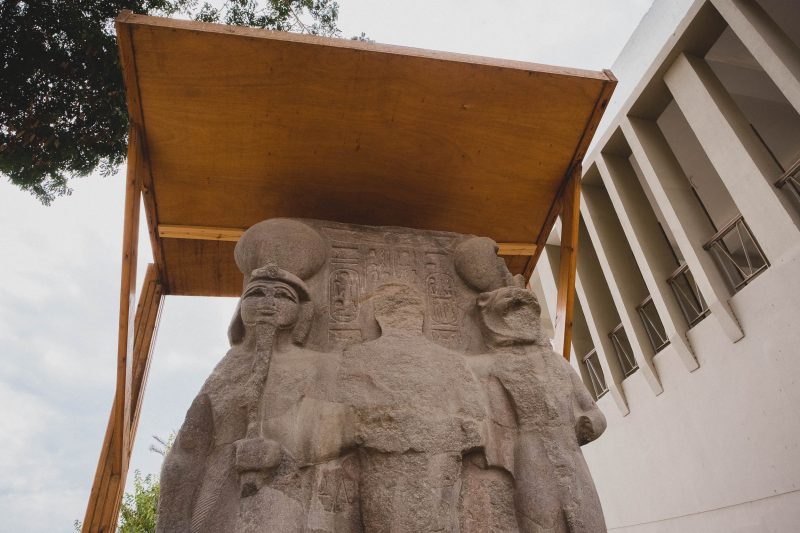
There are many fine examples of figures seen throughout ancient Egyptian ruins, such as Hathor, the goddess of motherhood and music. I spotted her face on columns in many of Egypt's most famous temples.

While it's not as big as the Great Sphinx of Giza, the Sphinx of Memphis is in better condition. It is 26 feet long, 13 feet high, and made of stone. Because Memphis, its temples, and its ruins were pillaged many times, the Sphinx of Memphis is one of the few large pieces to survive.

Source: Encyclopedia Britannica
There were plenty of souvenir sellers set up in the open-air museum. But unlike some that I encountered farther south in Egypt, these ones were very friendly and not too pushy.

The centerpiece of the complex is a red granite statue of Ramses II. He is depicted in a powerful position, with his muscles flexed and looking sternly on those below.
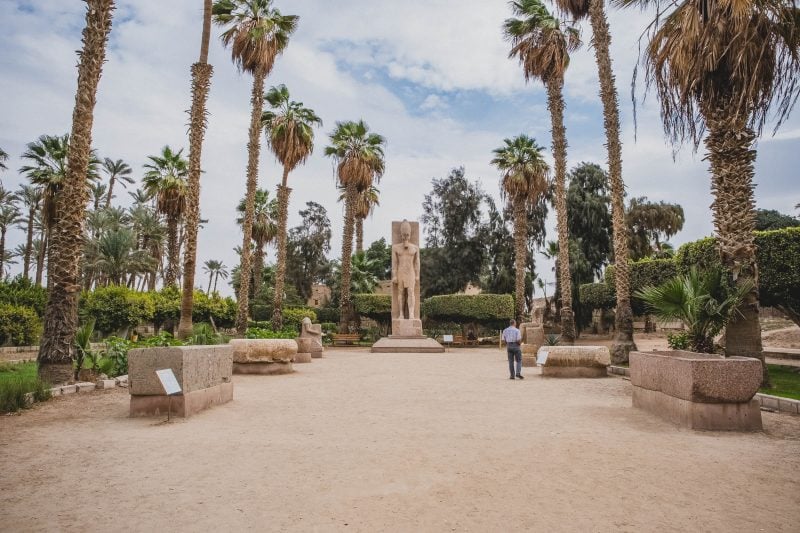
If you look at the statue's right hand, you can see a bit of red paint that still remains on the statue. The statue, like many ancient Egyptian statues, was once elaborately painted.

The next stop was Saqqara, the necropolis of the ancient capital of Memphis. The ancient burial ground is filled with buildings, monuments, and tombs. A ticket costs 150 Egyptian pounds ($8.50).
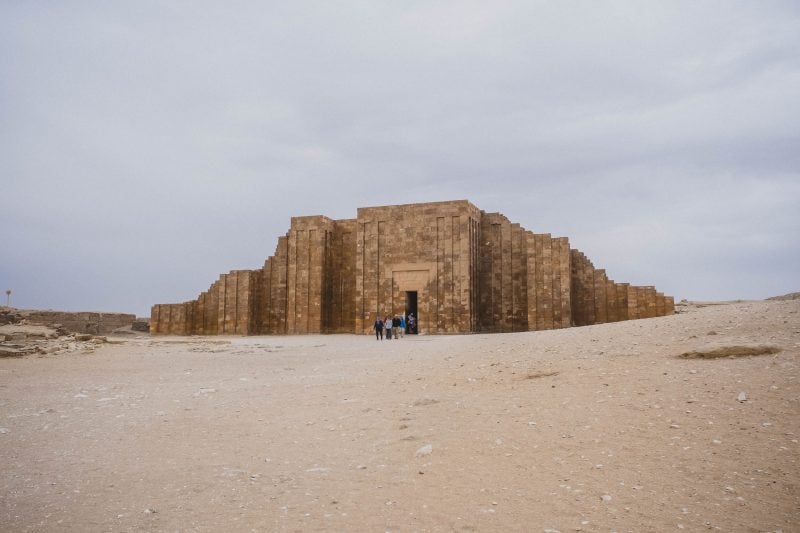
Saqqara houses the oldest stone building in history — the Djoser funerary complex. The complex begins with this colonnade with columns carved to look like bundles of plant stems.
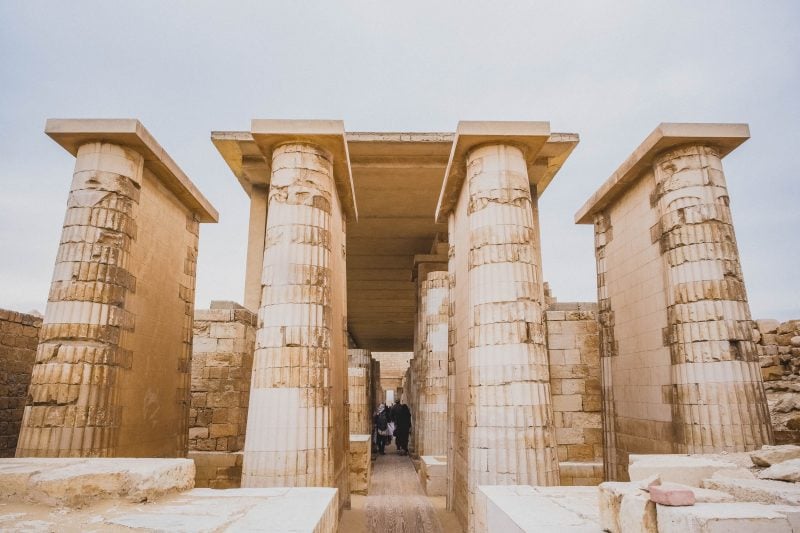
First, you have to walk through the gauntlet of souvenir sellers and ad hoc tour guides. If you are interested, by all means, haggle away, but a firm "No, thank you" and a brisk walk does the trick if you are not.

The Step Pyramid of Djoser originally stood 205 feet tall. Because Djoser was the first large-scale stone monument, Egyptologists believe its construction signified a new level of wealth, coordination, and human resources of the government.
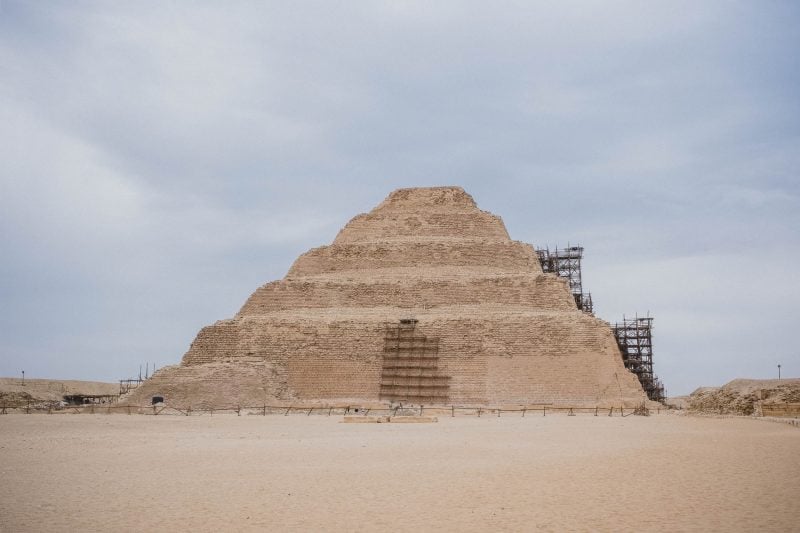
At four square miles, Saqqara is quite large. One could spend a few hours exploring the various galleries and monuments. It was a burial complex for nobles and important officials, too.
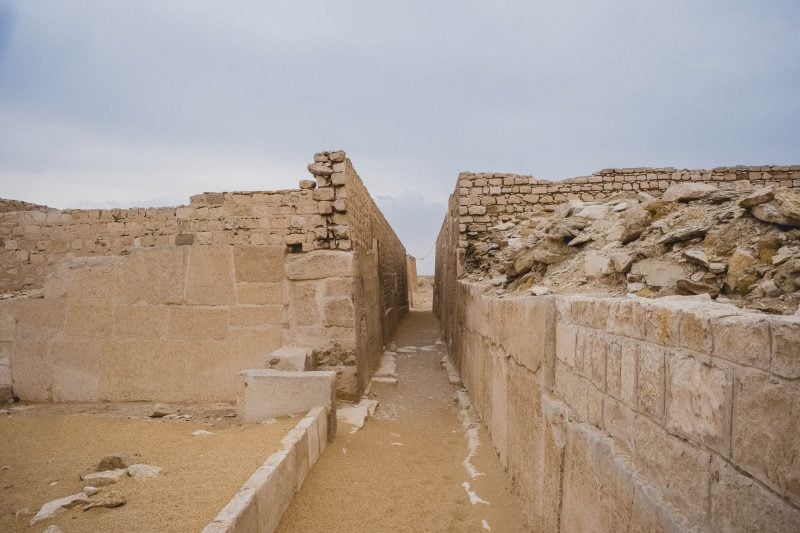
The Saqqara complex is one of the best places to explore mastaba, an ancient Egyptian tomb consisting of a rectangular structure with sloping sides and an underground burial chamber.
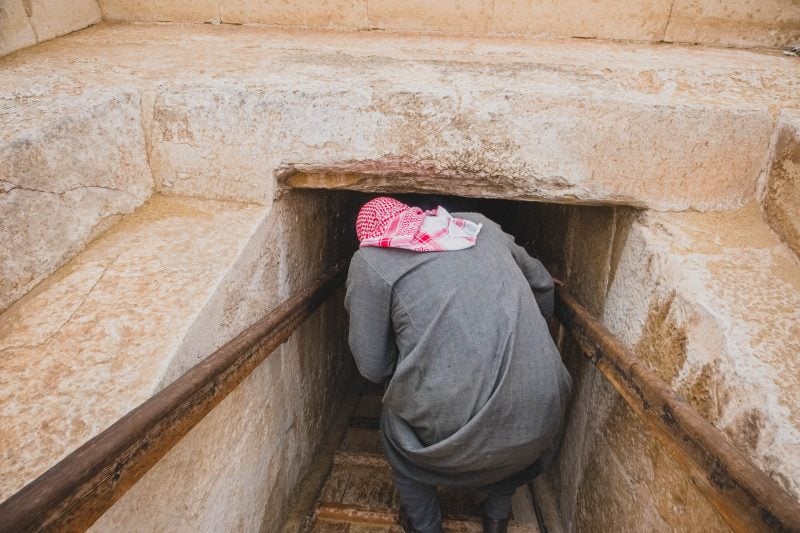
Source: PlanetWare
You can go into many of the tombs, which are full of hieroglyphs. I loved being able to get close and examine each one to try to understand what it meant.
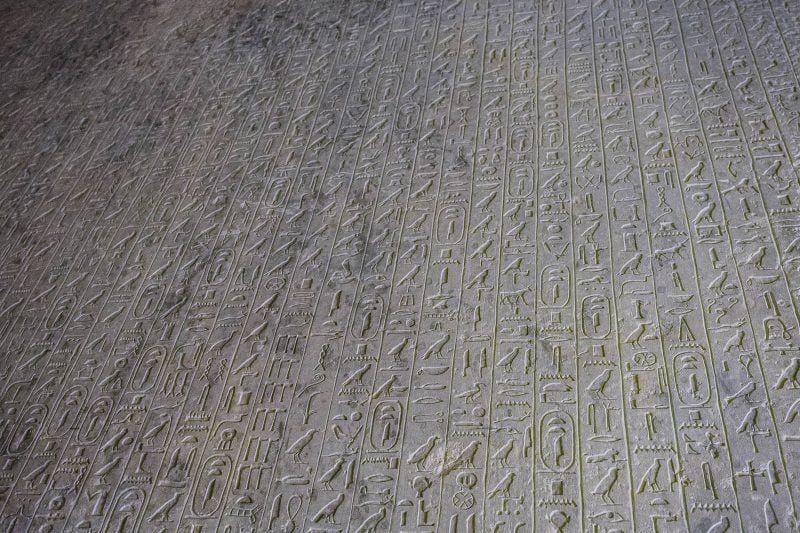
There are signs telling people not to take photos in the tombs. But in the same breath that the guard taking me down told me that, he said he'd let me snap some for a tip.

One of the more expansive mastabas I visited was the Mastaba of Kagemni. Kagemni was a vizier and judge under three pharaohs during the Old Kingdom.
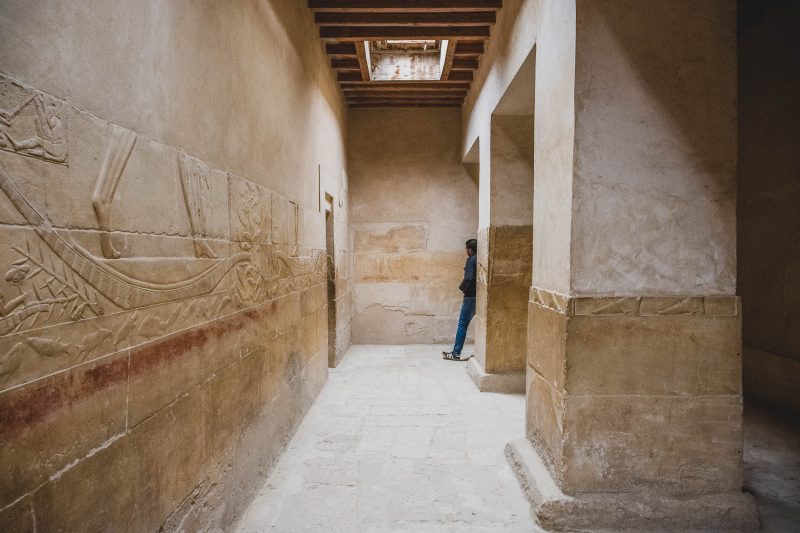
Source: PlanetWare
The walls are lined with bas-relief carvings depicting scenes of daily life in ancient Egypt.

There's still original red paint on the walls, showing how the reliefs were once elaborately painted. This is a portrait of Kagemni with a staff and mace.
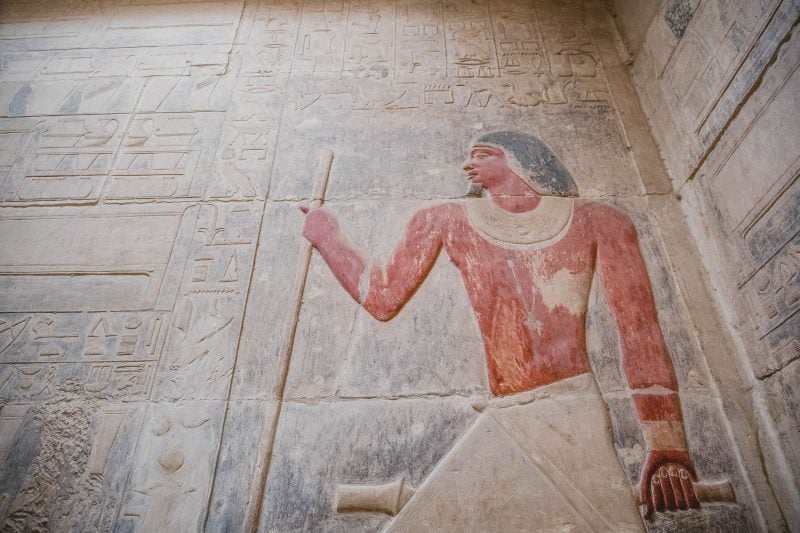
The scenes depicted include dancing, hunting, presenting offerings, and fattening chickens.

After exploring Saqqara, it was time for the grand finale — the Great Pyramid. But, first, I took a look at the view back toward Cairo. On a clear day, you can see the city in the distance. It was not a clear day.

After a 40-minute drive back (with a stop at a papyrus shop), it was time for the pyramids. I'd read that the area outside the pyramids was bustling, but when I visited it was mostly empty.
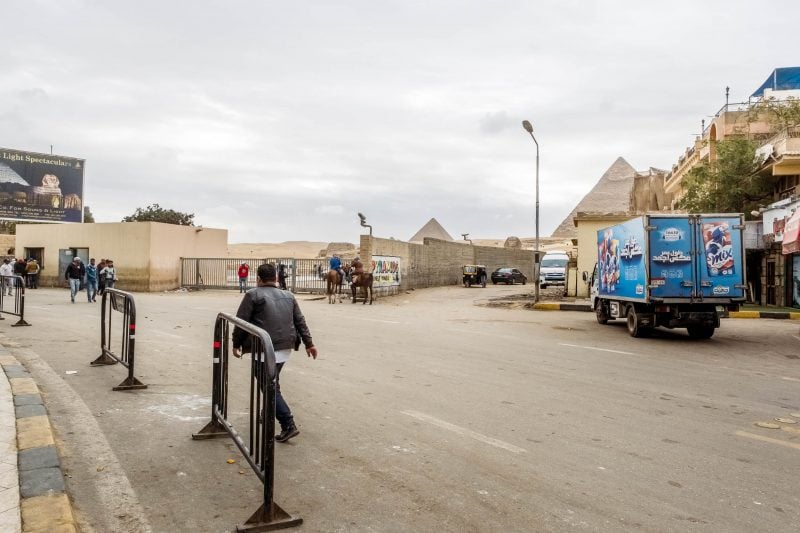
If you're wondering where you should eat to get the best view of the pyramids, the correct answer is the second floor of the Pizza Hut. I was told this unironically by several other tourists and guides.
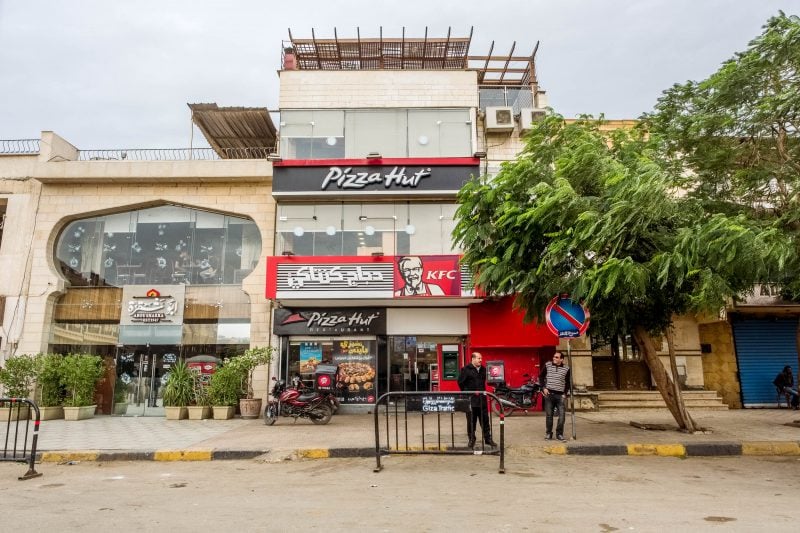
I entered the Giza Plateau at the eastern entrance near the Sphinx. A ticket to the entire plateau (the grounds around the Pyramids and the Sphinx) costs 400 Egyptian pounds ($23).
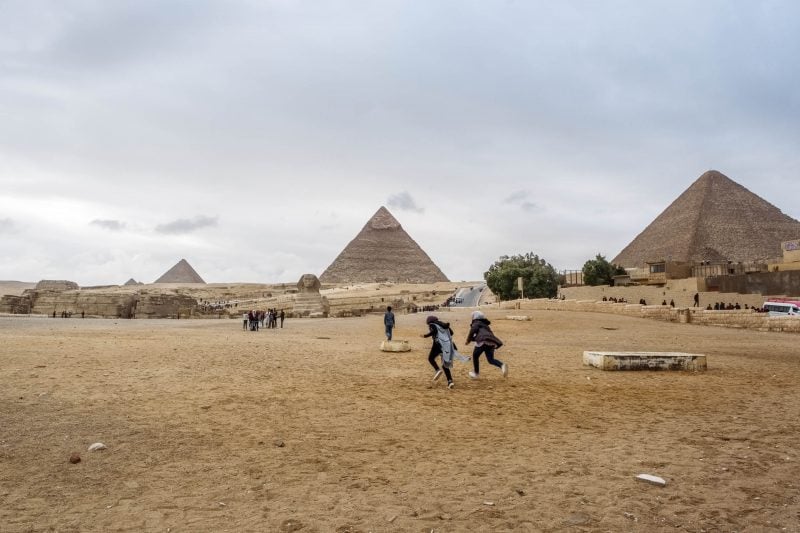
Before you walk into the complex, touts will try to convince you that the walk to the pyramids is very long and difficult, necessitating a ride in a carriage or on a camel. Abrahim, my host at Pyramid Lofts, said it shouldn't cost more than a few bucks for either, but touts will run up the price on naive tourists.
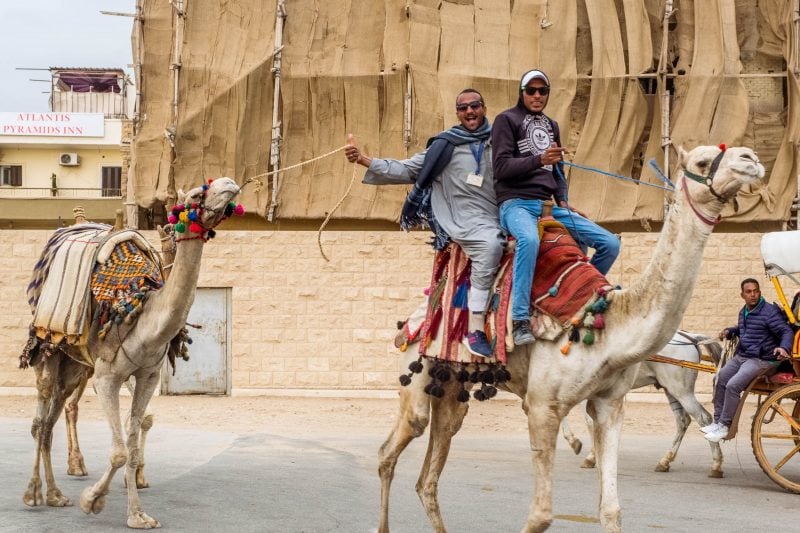
Before coming to Egypt, I had heard horror stories about hassling at Giza and grounds strewn with garbage. I may have been lucky — or perhaps the government cleaned up the area — but I found the complex to be mostly clean and peaceful.
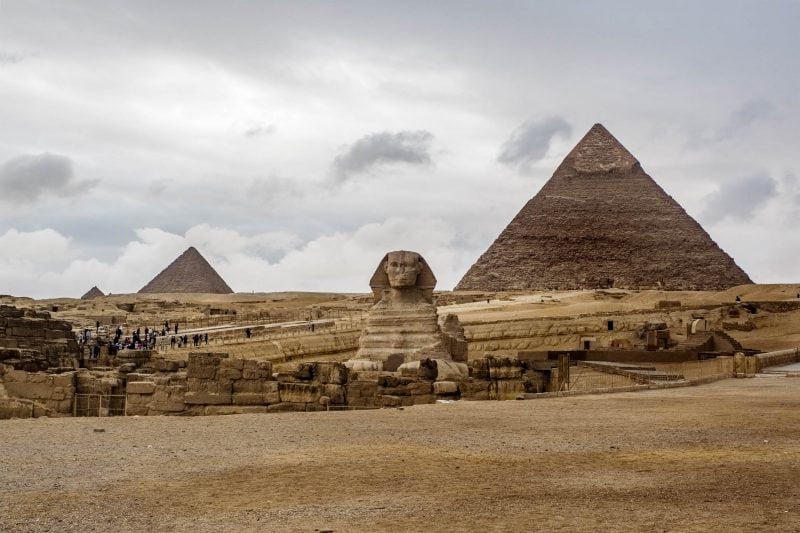
While the pyramids shock you with their huge size, there's no getting around that the Sphinx is smaller than you probably think. It's about 240 feet long and 66 feet tall. Meant to be a protector of Giza, the Sphinx is believed to have been built during the reign of Khafre, the builder of the second-largest pyramid.

One of the most breathtaking ways to see the pyramids, according to Abrahim, is to take a horseback tour from outside the complex and ride in from the desert during sunset from the east.

All throughout the complex, there are locals selling drinks, souvenirs, and snacks from small tables. During its peak, tourism accounted for 12% of Egypt's jobs. The economic downturn and the drop in tourism have made many desperate.
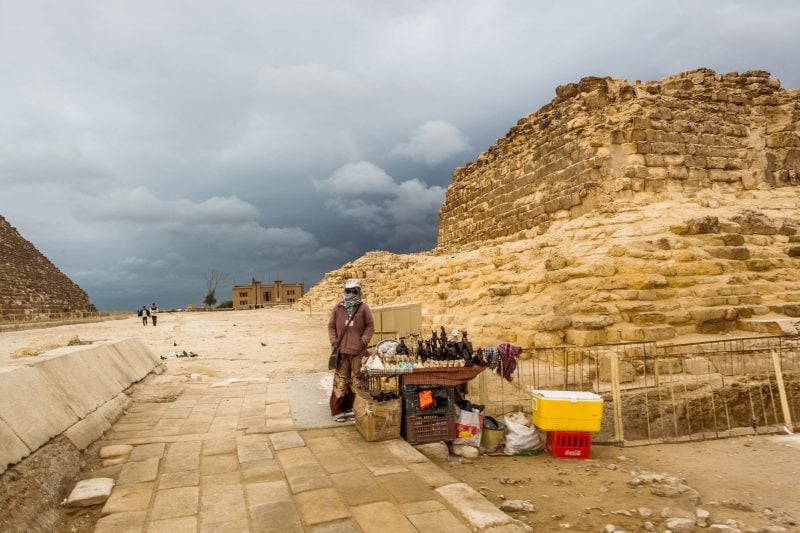
A common scam is random locals pretending to be ticket takers, guards, or police and asking for visitors' tickets. I had been warned by my guide that the only time I need to show my ticket is when entering. If I had given the scammers my ticket, my guide said, they'd try to extort money from me.
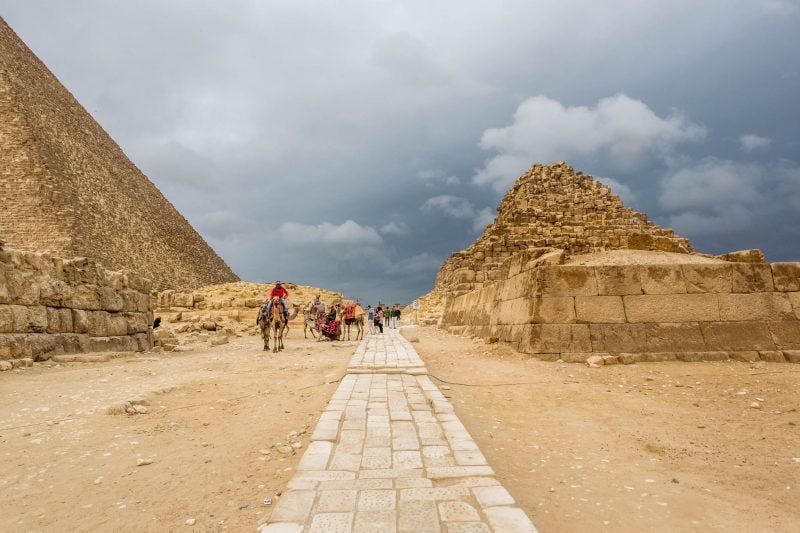
The Great Pyramid was built by Khufu, the son of Sneferu, the pharaoh who built the Red Pyramid. It is 481 feet tall. Each pyramid was part of a much larger complex that included temples, a palace, and a "solar boat" some believe carried the pharaoh to the afterlife.
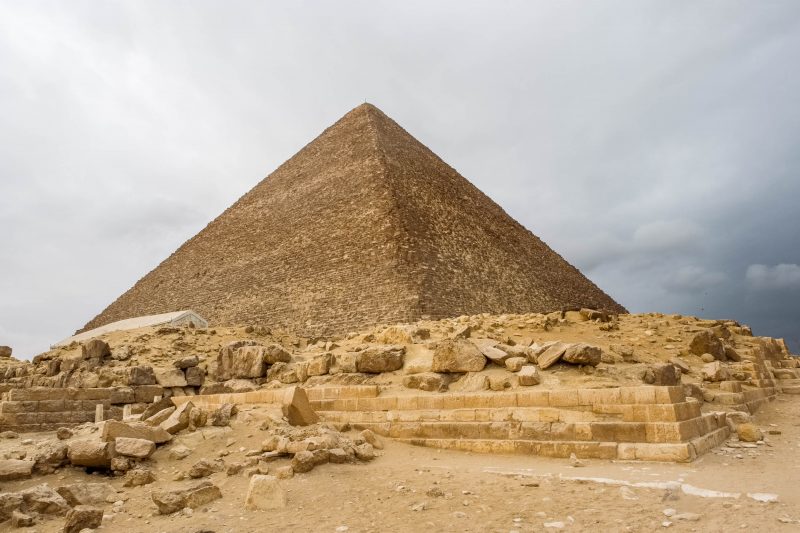
Source: National Geographic
Khufu's solar boat is in a museum attached to the pyramid. I skipped it because I wanted more time to take in the sight of the pyramid. Some tourists told me they made two trips to the Giza complex: the first with a guide to learn the history and the second just to walk slowly through it and take it in.
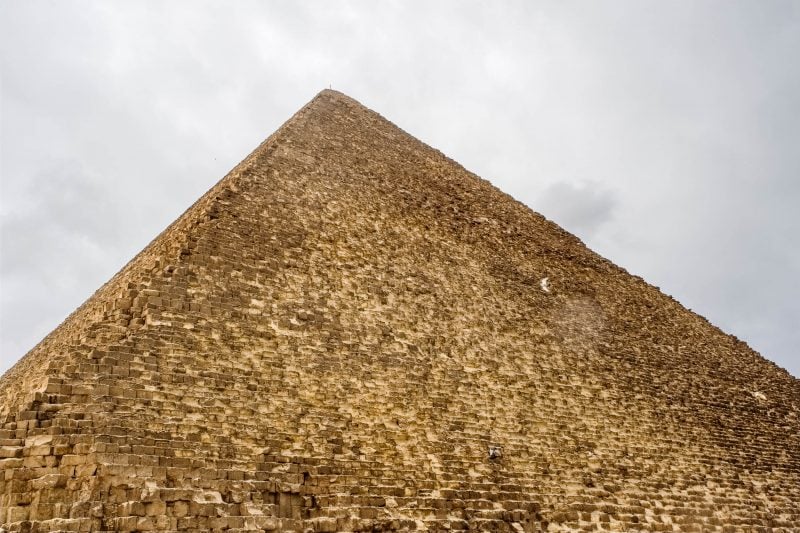
Source: National Geographic
A few tourists I met told me going inside the Great Pyramid yielded the same collection of brick walls and narrow passageways I found in the Red Pyramid. I skipped paying the extra $20 to go inside.

Read More: I visited the Pyramids of Giza and found a surprising downside that no one ever talks about
I was much more interested in exploring each new angle of the pyramids.

With the sun setting amid a stormy sky, it produced some interesting light patterns on the buildings to photograph.

Like this positively apocalyptic deep yellow light that shined on the side of Pyramid of Khafre.
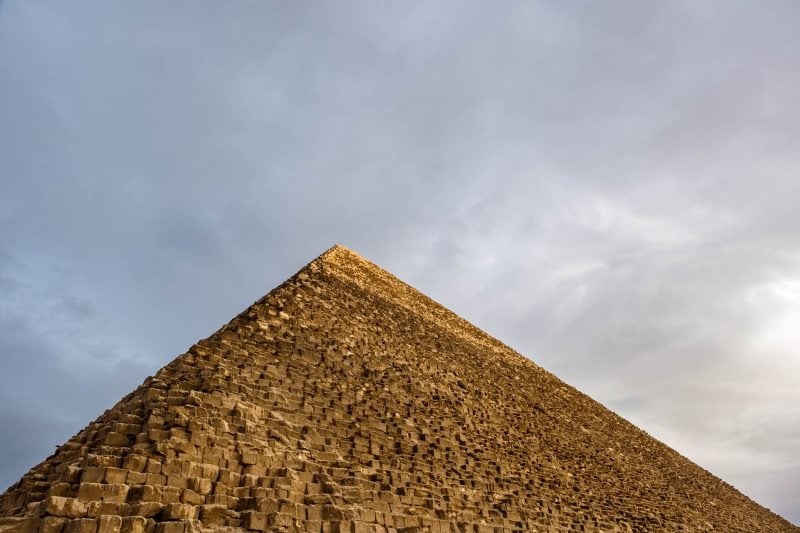
In person and up close, the pyramids tower over the landscape. It's a constant reminder that no matter how much wealth and power you amass in your life, we're all going to the same place.
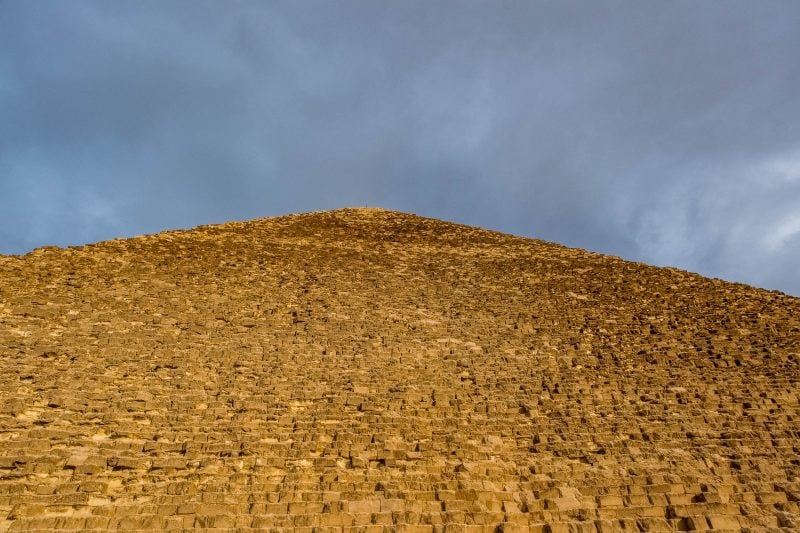
While I saw a few pieces of garbage floating here and there on the plateau and in the wind, the only place I spotted a lot of trash was on the ramp into the Pyramid of Khafre.
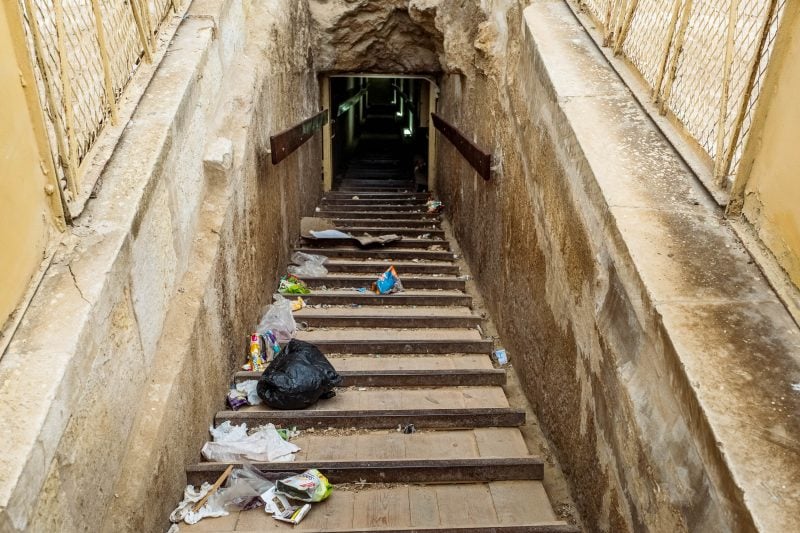
At any given time, there are only two pyramids open to the public, with one undergoing restoration. It rotates every two years. When I visited, the smallest pyramid, that of Menkaure, was closed for restoration.

The upside to visiting the complex late in the day was that it was relatively quiet, and I got a stunning view of the sun setting behind the pyramids.
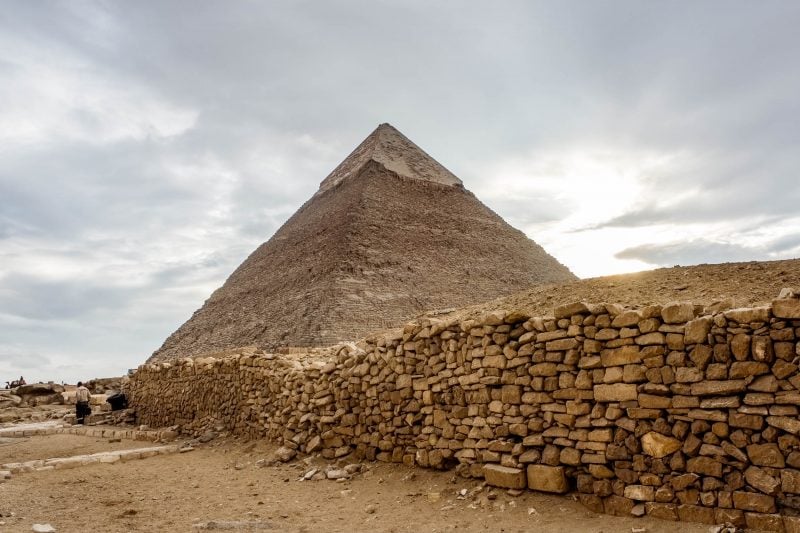
The downside was that I had only two hours to explore the complex. That was not enough time. The sun had set, the complex was closing, and guards were ushering me out.
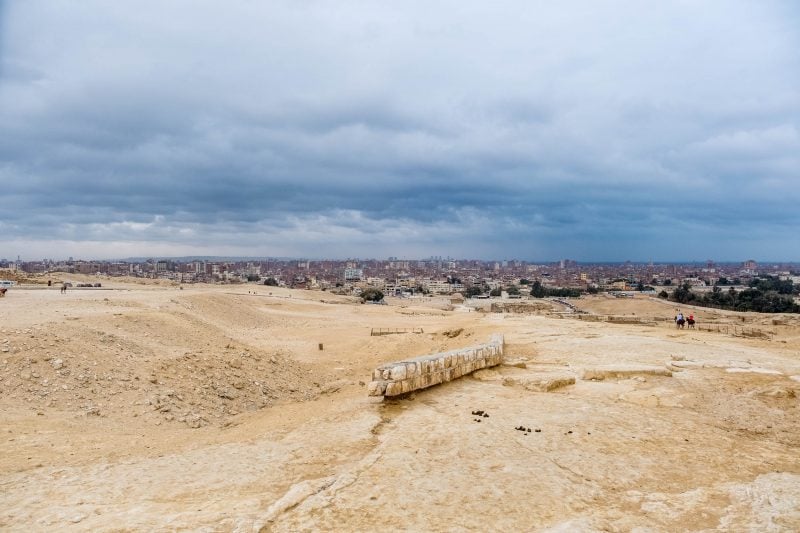
Every night, the Egyptian government puts on a two-hour sound and laser-light show, during which the pyramids light up in all different colors as a booming voice tells stories of ancient Egypt. From the Pyramid Loft Homestay, the sister guesthouse of where I was staying, I had a perfect view of the show.
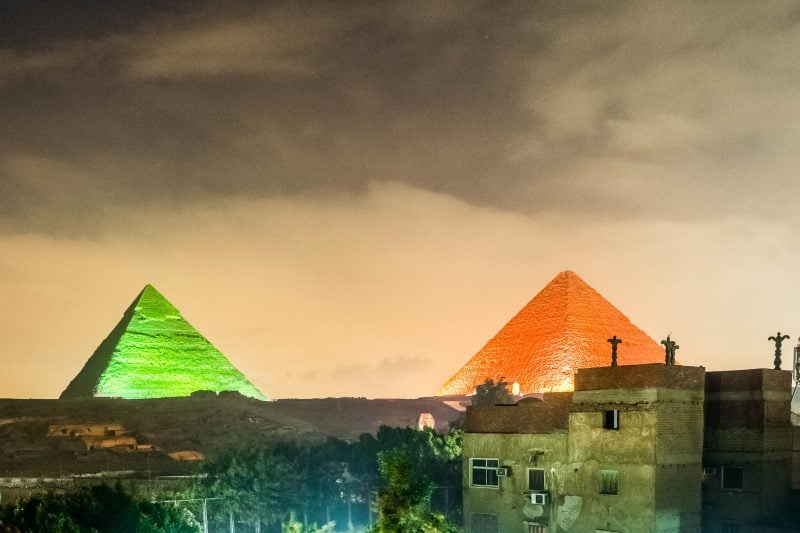
If you want my advice, opt for a longer trip to Giza. A couple hours at the complex wasn't enough. I wish I visited Saqqara, Memphis, and Dahshur on one day and the Giza pyramids the next, so I wouldn't have been rushed. That said, seeing the Giza pyramids at sunset was spectacular and certainly lived up to the hype as a wonder of the world. I'll be back.
